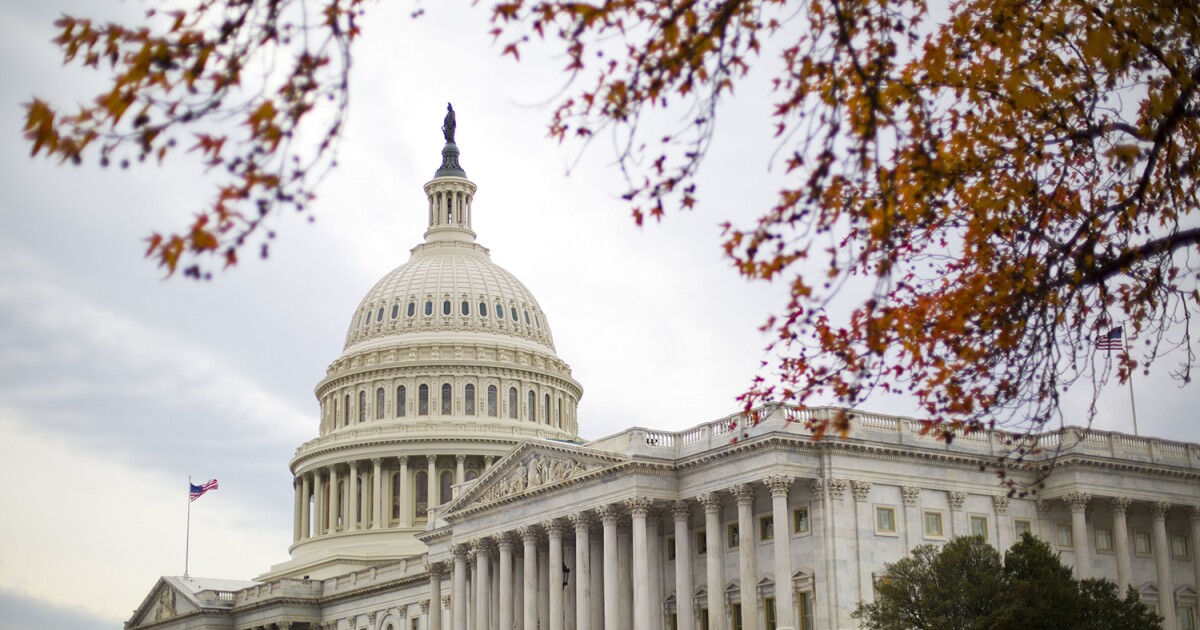

Democrats are rushing to push their omnibus spending bill through Congress to fund the government for the next year, with only five days to go until the current budget runs out and a temporary shutdown ensues.
Negotiations over the annual spending bill stalled late last week as both sides disagree on how to keep the government running, with Democrats seeking to approve a bipartisan omnibus bill that would last until the fiscal year ends and Republicans pushing for a continuing resolution that would fund the government at the same levels until January. A growing number of GOP lawmakers have begun to push for the latter option, hoping to have more of an influence once they take control of the House next Congress.
LAWMAKERS TRY TO WORK OUT OMNIBUS AS CALLS FOR SHORT-TERM FUNDING GROW
Lawmakers left Washington for the long weekend without a final top-line number, reportedly disagreeing over $25 billion worth of nondefense spending, according to GOP Sen. Richard Shelby (AL), one of the lead negotiators. The total bill is expected to cost roughly $1.7 trillion.
Democrats have indicated they may be open to some sort of an agreement on a continuing resolution deal, with House Speaker Nancy Pelosi (D-CA) telling reporters on Thursday that “we may be forced to have a yearlong CR.”
“I don’t like that, but it’s much better than the poison that might befall us with another kind of bill,” she said. “This is a last resort and would leave many critical government services, including the Defense Department, in need of funding in the year ahead.”
However, Republicans are pushing for only a short-term continuing resolution that would expire sometime in January once the new Congress convenes. Sens. Rick Scott (R-FL) and Rand Paul (R-KY) are both calling for a temporary funding bill, hoping to give their party more power over the budget.
“I’ve been up here four years and I watch this. Everything under the sun gets thrown in and we spend unbelievable amounts of money and guess what? We all pay higher taxes. We all see our inflation go up. This has got to stop,” Scott said last week. “What we ought to do is a short-term [continuing resolution] sometime into the next Congress and let the next Congress do their job, pass a real budget, and then let us go through the budget.”
Democrats are expected to release a draft of their proposed budget on Monday in an attempt to restart negotiations, but several lawmakers expect they may need to pass a weeklong extension of the current budget in order to make a deal.
Lawmakers are scrambling to come to an agreement on the bill before the end of the year, with some talks that members of Congress may need to work through the holidays to pass the budget. Democrats are especially concerned about getting the spending bill through Congress, hoping to avoid leaving it in the hands of Republicans when they take control of the House in January.
House Minority Leader Kevin McCarthy (R-CA), who is vying to become the next speaker, is pushing for a short-term continuing resolution, hoping to wield his new power to cut back on domestic spending and Ukraine aid in the budget.
However, some Republicans have pushed back against approving a temporary budget, arguing it would only make things worse.
“I think it’s the worst thing we could do to a newly formed Republican House is send them a [continuing resolution] into early in the year,” said GOP Sen. Roy Blunt (MO), according to Bloomberg News. “I just don’t think they’ll be ready for it.”
CLICK HERE TO READ MORE FROM THE WASHINGTON EXAMINER
The impasse over the budget leaves uncertain the future of other legislative proposals that lawmakers hoped to attach to the omnibus spending bill, including measures that would overhaul how Electoral College votes are certified and allow cannabis companies to access banking institutions.
The federal government is currently funded through Dec. 16 thanks to a continuing resolution passed by Congress in September, just hours before a government shutdown would have kicked in. The temporary bill included funding for the government through the midterm elections and emergency aid for Ukraine, among other things.







